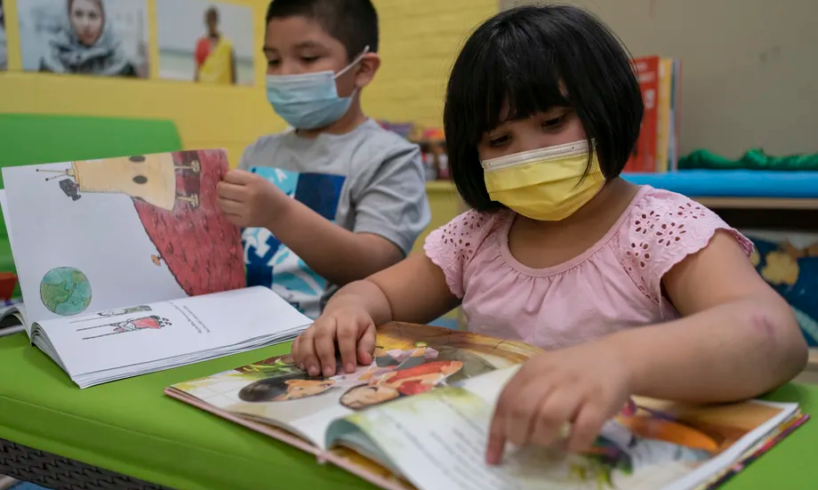
There is mounting urgency over getting more Colorado students reading on grade level, yet parents often can’t find information on what makes great literacy instruction and what practices their schools follow.
Interested in learning more? During a panel discussion hosted by Chalkbeat Colorado and the Montbello Power Advocates, parents, teachers, and experts will weigh in on how schools can better teach students how to read. The Nov. 11 conversation follows Chalkbeat Colorado investigations over the last year that reveal a huge variety of reading curriculums in use, often different programs at schools a few miles apart. Leaders in one metro Denver district said they didn’t know what schools were using to teach reading because they had never compiled such a list until Chalkbeat requested it.
Read on for the Chalkbeat resource guide for event attendees and anyone who wants to better understand how reading is being taught in Denver Public Schools generally and in the northeast neighborhood of Montbello specifically.
Montbello has 11 elementary or K-8 schools and only two of them, both charter schools, use state-approved reading curriculums in kindergarten through third grade. The challenges for young readers in Montbello mirror a statewide issue. Before the pandemic, six in 10 third graders across Colorado couldn’t read proficiently, and those issues have been exacerbated over the last year. At one Colorado school, the pandemic torpedoed many of recent literacy gains and threw an especially disruptive wrench into students’ educations.
How do I search for my school’s literacy curriculum? What is structured literacy, anyway?
You can use our search tool at the bottom of this 2020 Chalkbeat Colorado article to find your Denver school’s curriculum and whether or not it’s state approved.
How can I ask questions about literacy at my school?
These documents will walk you through the questions you should ask about how schools approach literacy instruction in the early grades, including what to look for and potential red flags. The tools were created by COKID, an advocacy group for children with dyslexia, and a school improvement consulting firm called Schools Cubed.
- Colorado Literacy Dialogue Tool (link)
- Spanish Colorado Literacy Dialogue Tool, translated into Spanish (link)
The Colorado Department of Education offers two FAQs about dyslexia:
What articles should I read on literacy in Denver and Colorado schools?
- “Colorado adopts more rigorous reading test for prospective teachers”(link) June 9, 2021
- “Dyslexia screening: Colorado efforts aim to identify students early” (link) March 15, 2021
- “Denver says this reading curriculum supports English learners. But the state says it’s not based on science and has to go” (link) Dec. 14, 2020
- “Colorado’s emphasis on phonics in reading could hurt English language learners, advocates say” (link) Dec. 15, 2020
Who are the panelists at Chalkbeat’s Nov. 11 event, and what resources do they suggest for parents, educators, and students?
The panel will feature:
- Ann Schimke, Chalkbeat reporter and moderator
- Sonia Cabell, associate professor at the Florida Center for Reading Research at Florida State University
- Kelly Okoye, longtime Montbello educator and school co-founder
- Priscila Ramirez, Montbello parent and community activist
- Holly Baker Hill, dyslexia and literacy specialist at Denver Public Schools
- Meredith Stolte, director of humanities at Denver Public Schools
Our panelists recommended the following resources:
- The Florida Center for Reading Research research database for parents and educators (link).
- A primer on structured literacy from the International Dyslexia Association (link).
- Tools for accessing dyslexia resources, finding providers near you, and tracking dyslexia legislation in your state from the International Dyslexia Association (link).
- Fact sheets from the International Dyslexia Association, available in English and Spanish (link).
- The Colorado Department of Education list of approved K-3 reading programs (link).
- Resources for families on navigating ADHD and dyslexia from Understood, available in English and Spanish (link).
This article was originally posted on A resource guide for literacy in Montbello and Denver schools